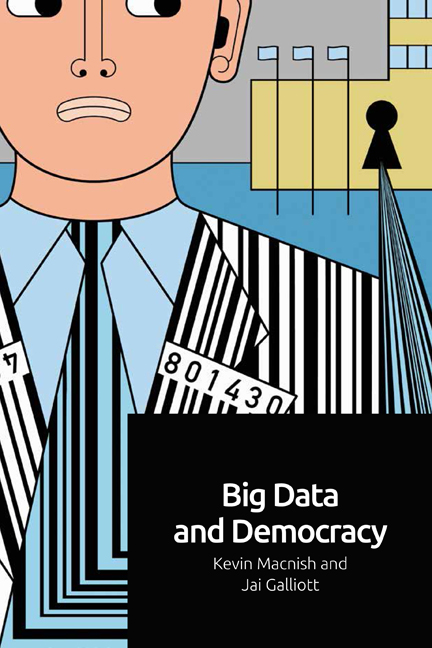One - Big Data, Consequentialism and Privacy
Published online by Cambridge University Press: 17 October 2020
Summary
Introduction: Big Data and Government
In this chapter, I consider the use of data in order to alter people's choices, along the lines of the ‘nudge ‘ philosophy of Richard Thaler and Cass Sunstein (2008). Although this technique of opinion management is part of the toolbox of both the private and public sectors, the greater powers of the public sector to compel citizens mean that its legitimacy is all the more important. In this chapter, I concentrate on whether government is justified in using data in this context to drive policy to produce good outcomes for citizens.
Data can be used together with understanding of behavioural psychology to alter the choices that people make. Information can be provided about choices, but presented in such a way that people are more likely to act, such as putting red/amber/green traffic light warnings about calorie counts in fast food restaurants. Feedback is also derived from data, either to suggest what social norms are, or to provide immediate feedback on behaviour. Gamification is another common tactic, with leaderboards, points or other affirmations reinforcing positive behaviour (Halpern 2015).
I want to consider the status of democratic (or benignly paternalistic) governments attempting to improve the lot of their citizens using the data dividend informed by behavioural psychology. Such an approach is distinct from (a) laissez-faire libertarianism ; (b) informed liberalism, whereby citizens are furnished with information about their choices, and then have to make their own decisions; and (c) paternalism, where government legislates to make what it considers desirable behaviour compulsory, or to make what it considers undesirable behaviour illegal.
Because data collection about individuals is now virtually invisible, and because data informs many of our choices, our behaviour is increasingly influenced by data, or by the application of data by interested parties, and it is unsurprising that governments are sometimes keen to get in on the act.
- Type
- Chapter
- Information
- Big Data and Democracy , pp. 13 - 26Publisher: Edinburgh University PressPrint publication year: 2020



